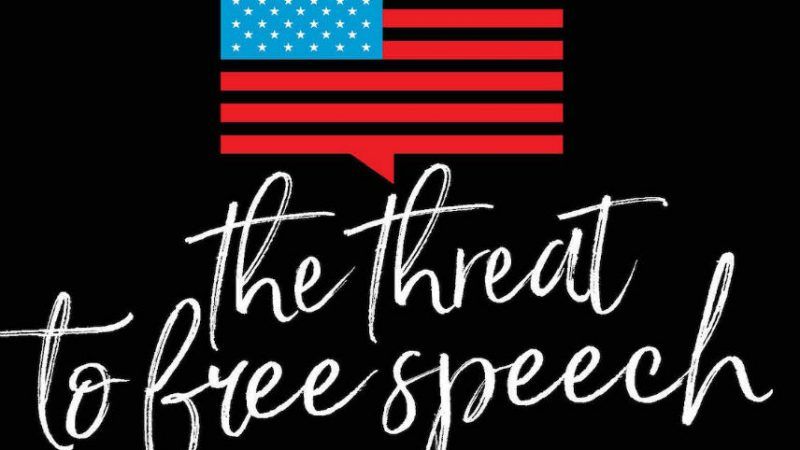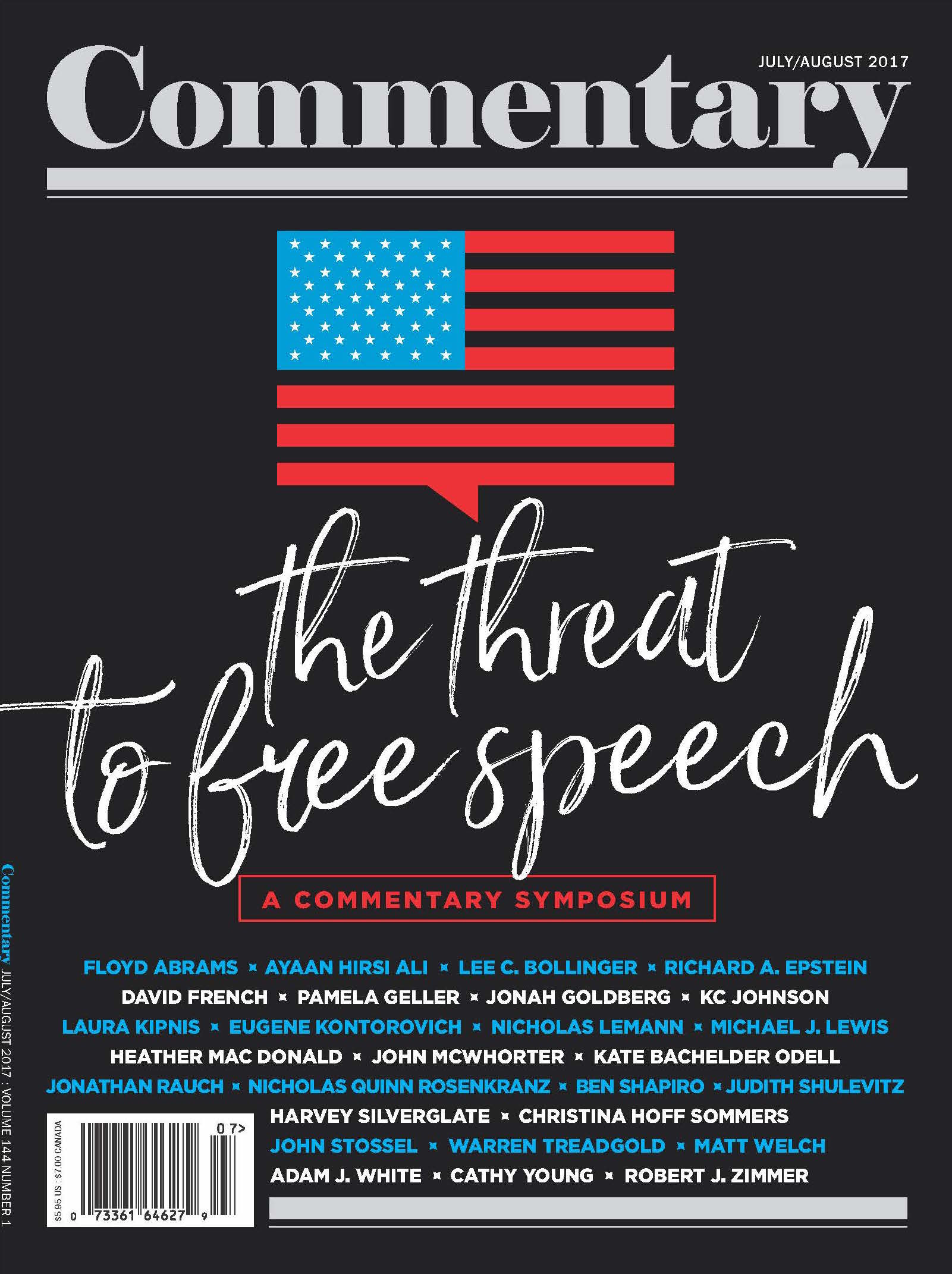Michael Lewis: The Supreme Court Has Harmed the Culture of Free Speech by Deciding Too Much Stuff
Starting with Roe v. Wade, the bestselling author argues in Commentary, the high court has removed too many topics from legislative debate.


As mentioned here Saturday and Sunday, Commentary magazine recently published a big symposium on the question "Is Free Speech Under Threat in the United States?" I contributed a brief essay, as did a whole bunch of people who have written for Reason over the years. Here are links to their archives around these parts, in addition to some choice quotes from their Commentary commentaries:
Jonathan Rauch ("Free speech is always under threat, because it is not only the single most successful social idea in all of human history, it is also the single most counterintuitive"), Harvey Silverglate ("today's most potent attacks on speech are coming, ironically, from liberal-arts colleges"), Laura Kipnis ("Here I am, a left-wing feminist professor invited onto the pages of Commentary"), John Stossel ("On campus, the worst is over"), Richard A. Epstein, Cathy Young, Christina Hoff Sommers ("Silencing speech and forbidding debate is not an unfortunate by-product of intersectionality—it is a primary goal"), Jonah Goldberg ("God may have endowed us with a right to liberty, but he didn't give us all a taste for it"), and John McWhorter.
Additionally, many of these and other contributors to the symposium have been subject to Reason interviews, including Epstein, Silverglate, Stossel, Sommers, Goldberg, Ayaan Hirsi Ali, Kipnis, and Rauch, the latter two of which are embedded at the bottom of this post.
The symposium repeats many of the same themes, as the campus-centric excerpts above indicate. Many contributors noted the paradox between our widening legal speech freedoms (unanimously reinforced by the Supreme Court twice just today) and the shrinking intellectual support for the stuff. I for one was predictably inspired by Jonathan Rauch ("Every new generation of free-speech advocates will need to get up every morning and re-explain the case for free speech and open inquiry—today, tomorrow, and forever. That is our lot in life, and we just need to be cheerful about it"), and repulsed by Islam critic Pamela Geller ("The real question isn't whether free speech is under threat in the United States, but rather, whether it's irretrievably lost. Can we get it back? Not without war, I suspect").
But the biggest surprise argument I don't recall encountering before came from mega-bestselling author Michael J. Lewis, who argued that even a pro–First Amendment Supreme Court unwittingly harms the culture of free speech by taking too many issues out of the scrum of consequential public debate. Excerpt:
If free speech today is in headlong retreat—everywhere threatened by regulation, organized harassment, and even violence—it is in part because our political culture allowed the practice of persuasive oratory to atrophy. The process began in 1973, an unforeseen side effect of Roe v. Wade. Legislators were delighted to learn that by relegating this divisive matter of public policy to the Supreme Court and adopting a merely symbolic position, they could sit all the more safely in their safe seats.
Since then, one crucial question of public policy after another has been punted out of the realm of politics and into the judicial. Issues that might have been debated with all the rhetorical agility of a Lincoln and a Douglas, and then subjected to a process of negotiation, compromise, and voting, have instead been settled by decree: e.g., Chevron, Kelo, Obergefell. The consequences for speech have been pernicious….[A] legislature that relegates its authority to judges and regulators will awaken to discover its oratorical culture has been stunted. When politicians, rather than seeking to convince and win over, prefer to project a studied and pleasant vagueness, debate withers into tedious defensive performance.
I suspect Lewis is exaggerating here, but his argument is intriguing.
After the jump, some relevant Reason interviews on free speech:
Laura Kipnis, from May 2017:
And Jonathan Rauch, from November 2013:


Show Comments (44)